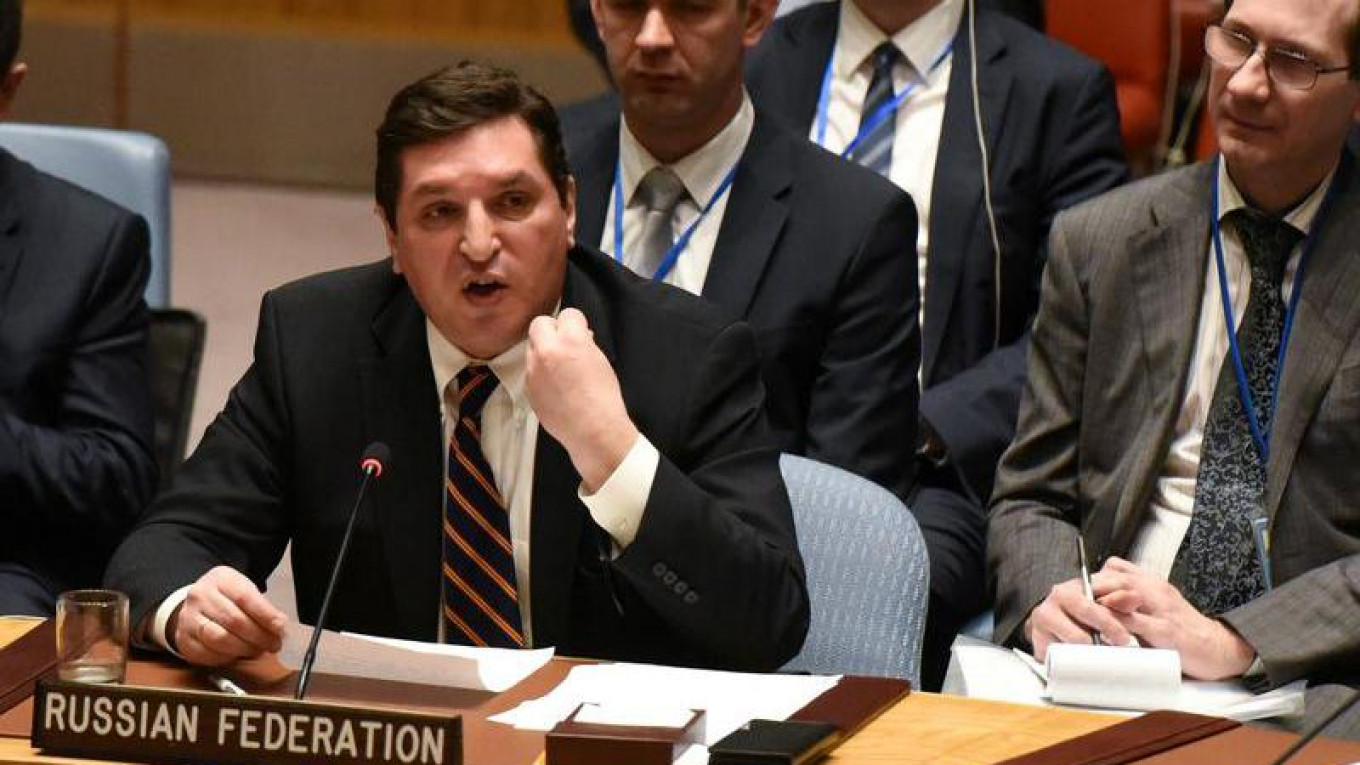The editor of “Evening Magadan,” a local paper in the Russian Far East port town Magadan, was forced to quit his job after criticizing the Russian Foreign Ministry on social media.
Andrei Grishin says he was forced to resign as the paper’s editor after he spoke out against a speech made by Russian deputy envoy to the UN Vladimir Safronkov on Facebook.
Last week, the diplomat made international headlines when he barked at the UK ambassador during a debate on Syria. “Look at me when I am speaking to you,” the Russian diplomat told his British counterpart.
On April 13, Grishin sharply criticized Safronkov for the style of his rant. He accused the diplomat of having a hoodlum style: “Adidas sweatpants tucked into shoes with pointed toes.”
The next day, Grishin was called in by the city administration, which owns the paper. There he was told he had to write a resignation letter. Grishin says that during the conversation it was made clear the reason his dismissal was his Facebook post about Safronkov’s speech.
Grishin said the decision to sideline him was not taken by the mayoral office, which he believes only executed the order. He said he found out that the reaction of local officials followed a “certain phone call” to their office.
The journalist said he did not want to go into conflict, so he agreed to sign the letter.
“What happened is just another sign that we, our country, our society is turning into a mixture of censorship, bans, hate, show patriotic rallies and illogical pseudo-officials in the background of apathetic reactions,” he wrote in a Facebook post following his forced resignation.
Grishin said he was sad to leave his post as the editor of the paper. Under his leadership, the news organization had vastly expanded its social media presence.
“I’m very sad that this happened here in Kolyma, where people were sent [to the gulag] for thinking freely,” he said.
A Message from The Moscow Times:
Dear readers,
We are facing unprecedented challenges. Russia's Prosecutor General's Office has designated The Moscow Times as an "undesirable" organization, criminalizing our work and putting our staff at risk of prosecution. This follows our earlier unjust labeling as a "foreign agent."
These actions are direct attempts to silence independent journalism in Russia. The authorities claim our work "discredits the decisions of the Russian leadership." We see things differently: we strive to provide accurate, unbiased reporting on Russia.
We, the journalists of The Moscow Times, refuse to be silenced. But to continue our work, we need your help.
Your support, no matter how small, makes a world of difference. If you can, please support us monthly starting from just $2. It's quick to set up, and every contribution makes a significant impact.
By supporting The Moscow Times, you're defending open, independent journalism in the face of repression. Thank you for standing with us.
Remind me later.






